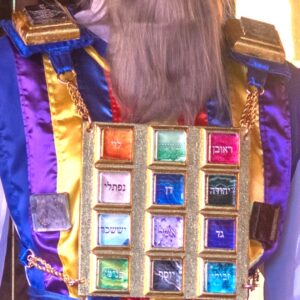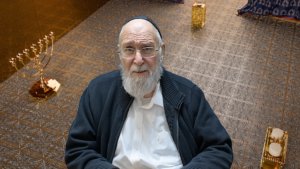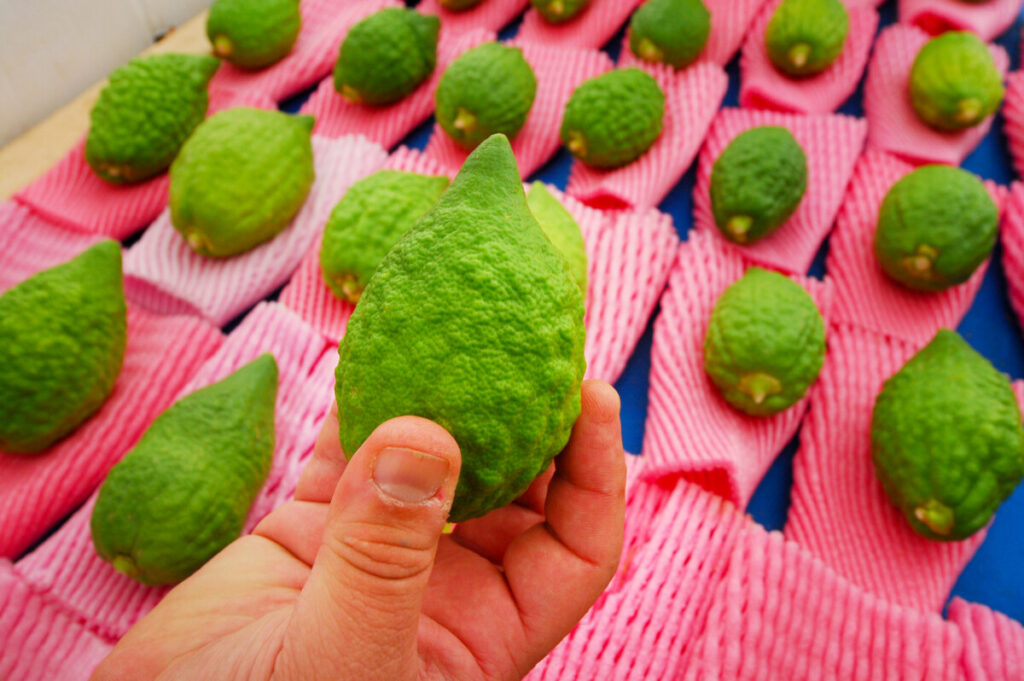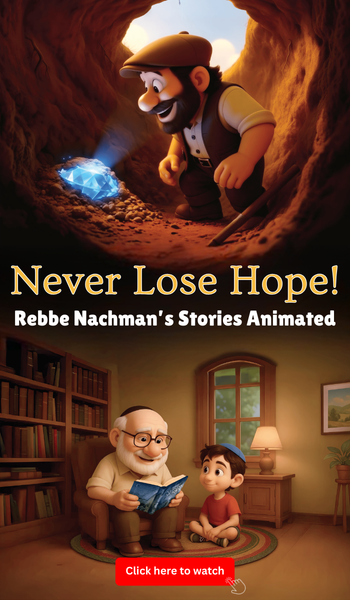With All Your Heart – Parshat Vayikra
It doesn’t matter what you bring or how much you bring. What matters is how you bring it—what your inner feelings are. Wholeheartedly bringing a small amount is far more valuable than begrudgingly bringing a large amount, because the whole point is to bring with all your heart and soul. This is the message of this week’s parsha.
This week’s parsha is parshat Vayikra, the first Torah portion in the book of Leviticus, the third of the five books of the Torah. This book mainly deals with the laws of sacrifices and the laws connected to the sacrifices. While the portions of Tazria, Metzora, Acharei-Mot, and Kedoshim deal with other topics, they still also address the subject of the bringing of sacrifices.
The Torah begins with the laws of sacrifices and details the levels of atonement required for each sin. There are also different levels based on one’s financial abilities, i.e. whether one should bring a bull, a sheep or a goat. But there are people who cannot afford to buy a bull or even a sheep: “But if his means are insufficient for a sheep or goat, then he shall bring as his guilt-offering for that which he sinned: two turtledoves or two common doves” (Leviticus 5:7).
But there is also someone in a worse situation even than this: “If he cannot afford two turtledoves or two common doves, he should bring one-tenth of an ephah of fine flour as his sin-offering. He must not place oil or frankincense on it because it is a sin-offering” (Leviticus 5:11). Unfortunately, we are all familiar with bitter souls who have next to nothing. Even when such people sin and they want to bring something to the Temple, they don’t have the means to do so. They don’t even have the minimum amount required to purchase turtledoves or common doves. Their pockets are empty! You cannot even call what he brings a “sacrifice.” What is he sacrificing? An iota of flour and that’s it! What a wondrous thing it is that the Holy One Blessed be He treasures even the meal-offering accepts it willingly.
There are amazing things written about the poor person’s meal-offering. The Torah writes about these sacrifices: “When a nefesh (soul) offers…”(Leviticus 2:1) and Rashi comments: “Nowhere is the word nefesh used in connection with free-will offerings except in connection with the meal-offering. For, who is it that usually brings a meal offering? A poor person! The Holy One, blessed be He, says ‘I will consider it as if he brought his very soul.’”
They don’t even have the minimum amount required to purchase turtledoves or common doves. Their pockets are empty! You cannot even call what he brings a “sacrifice.” What is he sacrificing? An iota of flour and that’s it!
The meal-offering of the poor differs from other meal-offerings in another way: “And not only this, but no other offering is offered in halves, and this (the meal-offering of the poor) comes in halves: half is offered in the morning and the other half in the evening.”
Another incredible comment: “And not just this, but it is written that anyone who bring up such an offering is as if he sacrificed from one end of the earth to the other.”
In addition, it is written: “An animal sacrifice is called ‘an appeasing fragrance’ and a bird offering is called ‘an appeasing fragrance,’ and a meal-offering is called a ‘appeasing fragrance’ to teach that it doesn’t matter that one person brings a large amount and another person brings a small amount, as long as one directs his heart to his Father in Heaven.”
From these moving and insightful comments, we can understand that G-d is not impressed by a rich man who arrives at the door of the Temple in a fancy carriage with a fattened bull, or well-to-do man who casually turns up with a stocky sheep or goat.
The Holy One, blessed be He asks for our hearts. The rich man arrives with a fat bull, and he feels like he is bringing brings an adequate restitution—even though he has committed a grave sin. In accordance with his evil deed, he has invested in bringing a suitable gift which just may appease the Creator. The poor man, on the other hand, knows very well that he is not bringing anything of value! When he arrives with his little bit of flour, he knows that it is in fact an act of loving-kindness from G-d that He is willing to be satisfied with his insignificant gift.
Why is this so, and how does this relate to us today?
Nowadays, when we do not have the Temple, repentance comes through prayer as our sages require: “‘Take words with you and return to G-d.’ I do not ask from you neither elevation offerings nor animal sacrifices, but prayer” (Midrash Rabba on Exodus, 38:4). The holy Zohar points out just how much pleasure G-d has when a poor person comes before Him with a broken heart. He has nothing in his life. He comes before G-d with a submissive spirit and asks for His forgiveness. Being that G-d understands the heart of the poor person very well—that he is downtrodden and humble—the Holy One forgives him and accepts his prayers with love and favor.
Amongst the three types of prayers, “A prayer for Moses,” “A prayer for David,” and “A prayer for the Poor,” the Zohar teaches that the prayer of the poor is the most desired and accepted above.
 The holy Zohar points out just how much pleasure G-d has when a poor person comes before Him with a broken heart…
The holy Zohar points out just how much pleasure G-d has when a poor person comes before Him with a broken heart…
The meal-offering is the equivalent to the prayer of the poor. The poor person does not in any way have the means to appease the Holy One on his own. What does he have? A smidgen of flour? Can he appease the Creator with this? His life is filled with frustration. Sometimes he doesn’t even have the strength to cry. He is no longer able to do anything with such a difficult life and all the financial pressures. If he were an important person, a reputable businessman, or a respected Rabbi—even if he didn’t have a good income—then things would be different. But here he is with no status whatsoever and in addition to that he has no money. There is no food in the house. His keeps on missing his mortgage payments, and his whole life is upside down. His home life is a disaster. His wife is constantly pressuring him to “Do something!” His children are a disappointment, and he wanders around sulking, with his head down.
When the poor man at least manages to slip away to his room, all he can do is cry out from the bottom of his heart in frustration. He wants to come close to G-d, but he has no luck or success. And the Holy One, blessed be He sees the poor man’s suffering and does not turn a blind eye to it.
It is important that at least this he is still able to do. He wants to appease G-d, so he opens his mouth and appeals to the Creator. This is everything. He has not given up hope. He can still shout out to G-d; he puts forth an effort and tries hard. He is in pain and he wants to change. He pleads with the Creator from the depths of his heart. This prayer, teaches the Zohar, rises up to the highest heights. There is nothing that can stand in the way of the prayer of the poor person. It is more precious than any other prayer that comes before G-d.
The poor man’s meal-offering is the embodiment of his miserable state. He truly has no other way to appease the Creator. Forgiveness is truly an act of pure kindness that the Creator does for him by accepting his utter submissiveness. In this case, the poor man’s meal offering is really his prayer. This applies to all of us—each and every one of us. We all need to humble ourselves before the Creator—to lower our heads and to return to Him with all our hearts, because in truth, none of us can really appease the Creator. What do we have that we can offer Him to appease Him? Not even the bit of flour of the poor man’s meal-offering. But what we can do is to repent and humble our hearts, and to come before Him with sincere regret for our sins. And the Holy One will not ignore our pleas and He will accept our repentance with love and appreciation.
This is what we can learn from the meal-offering of the poor person, even if it is only a “half an offering,” like the meal offering. Still, it is heartfelt and from the depths of the soul, and the Creator considers it to be as if we had literally sacrificed our souls. Even if it is only a small thing, we have made a change, as it is said, “a meal-offering is called an ‘appeasing fragrance’…while one person brings a large amount and another brings a small amount.” May we merit to experience a feeling so pure, with such a complete submission, that we are able to dedicate all our hearts to the Creator so that He should have true satisfaction from us.
(According to Likutei Halachot, Tefilat Minchah 7).
- 1 comment























One Response
“It doesn’t matter what you bring or how much you bring. What matters is how you bring it—what your inner feelings are. Wholeheartedly bringing a small amount is far more valuable than begrudgingly bringing a large amount…” Amein, Amein! The first paragraph really resonates with me. Reminds me of the story/folktale of “The Temple, The Rabbi, and the Stone.”